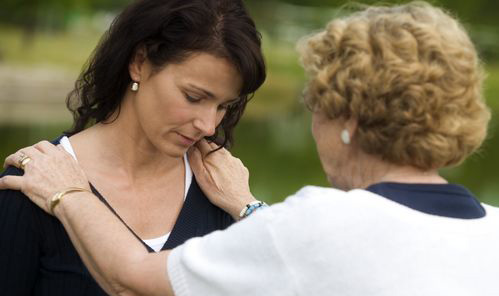
If only we can understand addiction as it is we would not do things that subject our health in to greater risk
There is nothing that happens without it roots, for example we all have our roots where we came from, who our parents, grandparents etc. are and so when we want to talk about us we are able to locate the roots and get into the story, in the same way the problem of addiction can also be understood from its known roots before we can talk of administering treatment. Understanding addiction will include looking at various triggers for an addiction and why some people appear to be more susceptible than others. In spite of what people say stopping an addiction is such an uphill task and many people do not understand why or how other people become addicted to drugs. It is often erroneously assumed that those who abuse drugs lack moral principles or willpower and they could stop using drugs if they want to simply by choosing to change their behavior.
The truth is that drug addiction is a complex and very complicated disease. Stopping abusing any substance is such an uphill task that takes more than good intentions or strong will. It is important to know that drugs changes the brain in ways that foster compulsive drug abuse. Nonetheless we are today luck that advancement in technology has simplified more about how drugs work in the brain and we are also aware that drug addiction can be successfully treated to help people stop abusing drugs and lead productive lives.
However before commencement of addiction treatment it is to comprehend what an addiction really is and the various factors which lead to the addiction. We can do this by looking at various triggers for an addiction and why some people appear to be more susceptible than others. Therefore:
Addiction is a chronic problem, often relapsing brain disease that causes compulsive drug seeking and use despite all known harmful consequences to the addicted persons and to people around them. When we are opting for drugs in most cases it is never done forcefully. The new user get in drugs on a willing basis, the problem that follows could be devastating in the sense that the alterations that take place in the brain over a period of time influences the addicts ability to practice self-control and hinder their will to resist intense impulses to take drugs.
Like I said we are today much more informed of the availability of treatment procedures tailored to help people counter addiction’s powerful disruptive effects. Several studies have also established that mixing addiction treatment medications with behavioral therapy is one of the best ways to ensure success for most patients. Treatment methods that are tailored to each patient’s drug abuse patterns and any co-occurring medical, psychiatric, and social problems can lead to sustained recovery and a life free of drug abuse. It is important noting that during treatment process just like any other chronic disease patients can relapse and begin abusing drugs again, when this happen, it does not indicate failure of treatment but rather it indicates that treatment should be:
- Reinstated
- Adjusted or that
- An alternative treatment is needed to help the individual regain control and recover.
Drugs contain chemicals that tap into the brain’s communication system and disrupt the way nerve cells normally send, receive, and process information. There are at least two ways that drugs cause this disruption it can either happen by:
- Imitating the brain’s natural chemical messengers and
- Over-stimulating the “reward circuit” of the brain
Some drugs (e.g., marijuana and heroin) have a similar structure to chemical messengers called neurotransmitters, which are naturally produced by the brain. This similarity allows the drugs to confuse the brain’s receptors and activate nerve cells to send abnormal messages.
Other drugs, such as cocaine or methamphetamine, can cause the nerve cells to release abnormally large amounts of natural neurotransmitters (mainly dopamine) or to prevent the normal recycling of these brain chemicals, which is needed to shut off the signaling between neurons. The result is a brain awash in dopamine, a neurotransmitter present in brain regions that control movement, emotion, motivation, and feelings of pleasure.
The overstimulation of this reward system, which normally responds to natural behaviors linked to survival (eating, spending time with loved ones, etc.), produces euphoric effects in response to psychoactive drugs. This reaction sets in motion a reinforcing pattern that “teaches” people to repeat the rewarding behavior of abusing drugs.
As a person continues to abuse drugs, the brain get used to the irresistible surges in dopamine by producing less dopamine or by reducing the number of dopamine receptors in the reward circuit. The result is a lessening of dopamine’s impact on the reward circuit, which reduces the abuser’s ability to enjoy not only the drugs but also other events in life that previously brought pleasure. This decrease compels the addicted person to keep abusing drugs in an attempt to bring the dopamine function back to normal, but now larger amounts of the drug are required to achieve the same dopamine high an effect known as tolerance.
Long-term abuse causes changes in other brain chemical systems and circuits as well. Glutamate is a neurotransmitter that influences the reward circuit and the ability to learn. When the optimal concentration of glutamate is altered by drug abuse, the brain attempts to compensate, which can impair cognitive function. Brain imaging studies of drug-addicted individuals show changes in areas of the brain that are critical to judgment, decision making, learning and memory, and behavior control. Together, these changes can drive an abuser to seek out and take drugs compulsively despite adverse, even devastating consequences that is the nature of addiction.
No single factor can predict whether a person will become addicted to drugs. Risk for addiction is influenced by a combination of factors that include individual biology, social environment, and age or stage of development. The more risk factors an individual has, the greater the chance that taking drugs can lead to addiction. For example:
- Biology – The genes that people are born with—in combination with environmental influences—account for about half of their addiction vulnerability. Additionally, gender, ethnicity, and the presence of other mental disorders may influence risk for drug abuse and addiction.
- Environment – A person’s environment includes many different influences, from family and friends to socioeconomic status and quality of life in general. Factors such as peer pressure, physical and sexual abuse, stress, and quality of parenting can greatly influence the occurrence of drug abuse and the escalation to addiction in a person’s life.
- Development – Genetic and environmental factors interact with critical developmental stages in a person’s life to affect addiction vulnerability. Although taking drugs at any age can lead to addiction, the earlier that drug use begins, the more likely it will progress to more serious abuse, which poses a special challenge to adolescents. Because areas in their brains that govern decision making, judgment, and self-control are still developing, adolescents may be especially prone to risk-taking behaviors, including trying drugs of abuse.
Drug addiction is a preventable disease. Research findings indicate that prevention programs involving social networks like families, schools, communities, and the media are effective in reducing drug abuse. Although many events and cultural factors affect drug abuse trends, when youths perceive drug abuse as harmful, they reduce their drug taking. Therefore it is important to bring in experts like Dr. Dalal Akoury who is also the founder of AWAREmed Health and Wellness Resource Center where she is offering her exclusive NER Recovery Treatment to everyone including other physicians and health care professionals through training, clinical apprenticeships, webinars and seminars. Finally besides what we get from doctor Akoury the general public needs also to be educated and in this area a collective effort from Teachers, parents, medical and public health professionals will be very essential in creating awareness that drug addiction can be prevented if one never abuses drugs.









